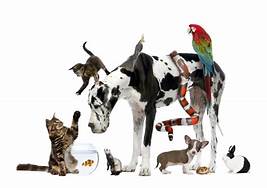How Many People in the World Have Pets?
Pet ownership is a common practice worldwide, with a significant portion of households having at least one pet. The number of people who own pets varies across countries and cultures, influenced by factors such as lifestyle, living conditions, and cultural norms.

Global Pet Ownership Statistics
1. According to a survey conducted by the American Pet Products Association (APPA) in 2021-2022, approximately 69% of U.S. households own a pet. This equates to around 90.5 million households with pets.
2. In the United Kingdom, a survey by the Pet Food Manufacturers' Association (PFMA) in 2022 revealed that 49% of households own a pet. This translates to approximately 12.2 million households with pets.
3. In Australia, the Animal Medicines Australia (AMA) reported that around 62% of households owned a pet in 2021-2022. This represents approximately 5.7 million households with pets.
Variations in Pet Ownership Across Countries
1. Urbanization and Lifestyle: In urban areas with high population densities and smaller living spaces, pet ownership may be lower due to space constraints and the lack of suitable facilities for pet care.
2. Cultural Factors: In some cultures, pet ownership is deeply ingrained in everyday life, while in others, it may be less common. Cultural attitudes towards animals and their role in society influence pet ownership rates.
3. Economic Factors: Pet ownership can be influenced by economic conditions. In countries with lower incomes, people may prioritize basic necessities over pet ownership.
Benefits of Pet Ownership
1. Mental and Physical Well-being: Studies have shown that pet ownership can provide numerous benefits for mental and physical health. Interacting with pets can reduce stress, lower blood pressure, and improve cardiovascular health.
2. Companionship and Social Support: Pets can provide companionship and social support, especially for individuals living alone or those experiencing loneliness. They can also facilitate social interactions between people.
3. Animal Welfare: Pet ownership can contribute to the welfare of animals by providing them with shelter, care, and love. Responsible pet owners ensure that their pets receive proper nutrition, veterinary care, and exercise.
Conclusion
The number of people in the world who own pets varies considerably across countries and cultures. Factors such as lifestyle, living conditions, cultural norms, and economic conditions influence pet ownership rates. Despite these variations, the benefits of pet ownership, including improved well-being, companionship, and animal welfare, make pets an integral part of many households worldwide.
Declaration: All article resources on this website, unless otherwise specified or labeled, are collected from online resources. If the content on this website infringes on the legitimate rights and interests of the original author, you can contact this website to delete it.





